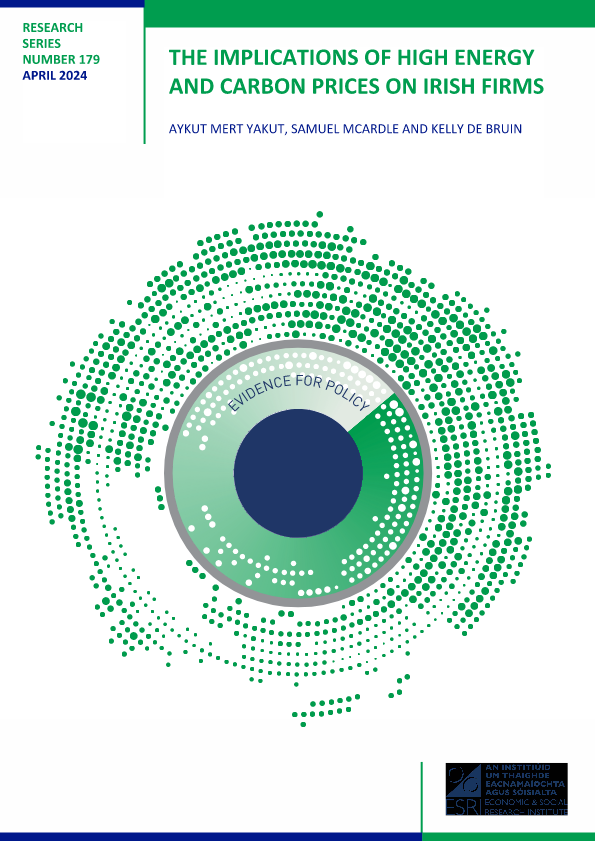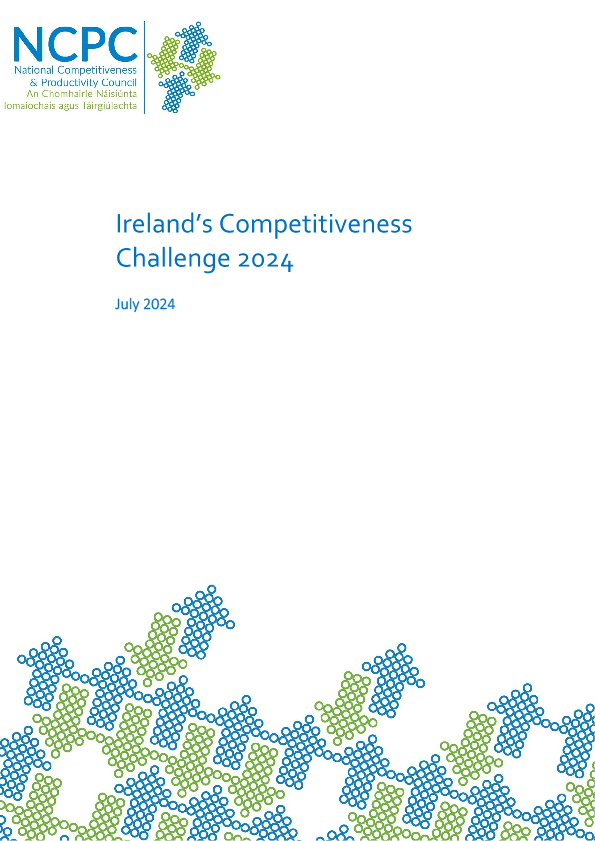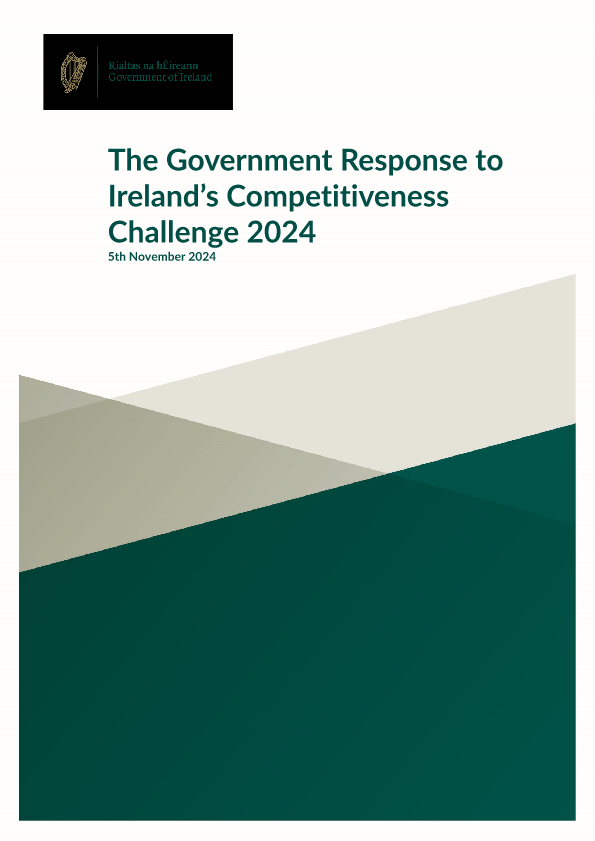- Ireland's Competitiveness Challenge 2025
- The Chair presents to the second annual Competitiveness Summit of Ministers hosted by the Taoiseach
- Bulletin 25-3: The Competitiveness Implications of Post-Pandemic Learning Losses
- Bulletin 25-2: Re-estimating Ireland’s International Competitiveness Performance
- Retrospective Review, 2020-2023
- NCPC's South-East Regional Seminar
- Bulletin 25-1 Developments in Ireland's National Productivity Statistics
- The Government Response to Ireland’s Competitiveness Challenge 2024
- Budget 2025 and Competitiveness: Investing in Ireland’s Future Prosperity
- NCPC Chair attends the Competitiveness Summit
- Ireland's Competitiveness Challenge 2024
- Bulletin 24-4 IMD World Competitiveness Rankings
- Bulletin 24-3 Competitiveness and the Housing Market in Ireland
- NCPC's Mid-West Regional Seminar
- NCPC Welcomes DETE-ESRI Joint Economic Research Programme Seminar
- Bulletin 24-2 Ireland’s Competitiveness and Productivity Framework
- ESRI Publish Working Paper of DETE ESRI Joint Research Programme
- Bulletin 24-1 Re-estimating Ireland’s International Innovation Performance
ESRI Publish Working Paper of DETE ESRI Joint Research Programme
In October 2021, the Department of Enterprise, Trade and Employment entered into an agreement with the Economic and Social Research Institute (ESRI) to embark on a joint research programme, titled “The Productivity Challenge and Its interaction with Climate, Digitalisation and Human Capital”. Productivity is hugely important as it is the driver of economic growth in the longer term, and as such is key to improvements in living standards, associated with growing and sustainable wage levels, good public services, and improved wellbeing. The Chair of the NCPC, Dr Frances Ruane, is a member of the Steering Committee for this joint research programme.
On the 5th of April, The ESRI have published the working paper as part of the joint research programme titled 'The implications of high energy and carbon prices on firms'. Transitioning to a low-carbon economy requires undertaking massive investment expenditures, and how to finance these expenditures remains at the core of economic debates. However, the cost of not transitioning to a low-carbon economy is often forgotten in these debates. These costs have increased under current global geopolitical tensions, especially for imported fossil fuel-dependent countries, such as Ireland. This report aims to quantify the cost of decarbonisation inaction. What costs will Irish firms face if they continue with their current energy use patterns when the carbon tax (set by the Irish government) and the European Union Emissions Trading System (EU ETS) price (determined by the market conditions at the EU level) are increasing while at the same time, international energy prices are at their extremely high levels?
The outputs from the joint research programme provide valuable evidence that will inform the Department and the NCPC’s analysis of productivity issues and will assist in identifying productivity-enhancing reforms and interventions.
Related files

PDF | 1.5MB

This report sets out a range of key challenges facing Ireland’s economy, particularly over the medium to long-term.
PDF | 2.8MB

This is the fifth formal response to the annual Challenge report.
PDF | 1.0MB
